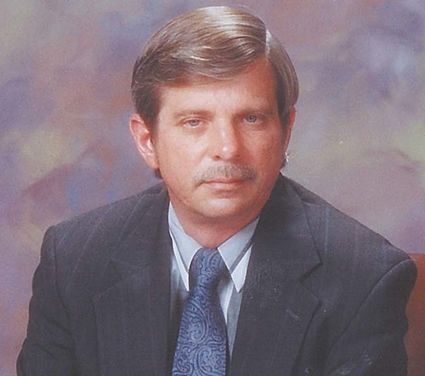Sluggish appeal process detrimental to suffering vets
Last updated 4/8/2009 at Noon
It’s been a long time – too long indeed – since I wrote something for The Record, but when I was asked to contribute to the anniversary edition, it’s a true pleasure. The Record has always been a friend to Orange County veterans, and so many stories have been published about their heroic deeds.
Some may remember a story a few years ago of a World War II veteran who was a radio operator on a B29. David Purdon Sr. knew he was transporting something extremely classified and critical to the final outcome of the war. Later, he realized he had been sitting on the bomb ultimately dropped on Nagasaki.
Unfortunately, Mr. Purdon passed recently; his funeral was Saturday. His family has permitted me to tell some of his story.
I met Purdon when I was editor of The Record, and I continued his plight with the Department of Veterans Affairs (VA), since I became Veterans Service Officer more than five years ago. Over these few years, we became good friends.
His story is amazing, as he would vividly recall repairing a compass and having to sit on the bomb itself to reach the compass. As the radio operator, he spent three days with the bomb. Ultimately his crew delivered the bomb to the island of Tinian, and it eventually made its way to Nagasaki.
Doctors have said that they believe a rare blood disease Mr. Purdon had was possibly related to his exposure to radiation.
The disease developed into leukemia, which led to his death.
Under current laws, leukemia is presumptive of radiation exposure.
Veterans who can prove of their exposure to specified doses of radiation, such as veterans who participated in above-ground atomic tests or the occupation of Hiroshima, are normally able to establish service-connected disability for leukemia.
Widows of these veterans may receive service-connected death benefits, termed as Dependency Indemnity Compensation (DIC).
Unfortunately, David Purdon’s claim was under appeal when he left us and was to be forwarded to the Board of Veterans Appeals (BVA) in Washington, D.C. Our office will be assisting Mrs. Purdon with her claim.
Despite conflicting evidence from the VA, David continually submitted more evidence in hopes of supporting his application for benefits and claim for service-connected issues. The facts are even documented in “No High Ground” by Fletcher Kneble. Mr. Purdon submitted pages of a book edited by Robert and Amelia Krauss, which provides a history of Mr. Purdon’s unit, the 509th Composite Group.
I sent an e-mail to Mr. Krauss asking for any additional evidence he could provide to help Mr. Purdon’s claim for service-connected compensation. Krauss scoffed at the VA’s contention that the bomb was carried by boat and no critical or radioactive parts were carried on the bomber of the 509th. “Their plane in fact did carry the bomb,” Krauss responded. “In fact, the plane was overloaded and had difficulty taking off.”
We also learned in 2007 that bombardier John Downey, who flew the same bomb-carrying mission with Purdon on Crew A-2, was still alive.
“The intent of this communication is to affirm that Staff Sgt David Purdon was radio operator on Silverplate B-29, serial no. 44-86347, that in late July 1945, did indeed transport from Kirtland Field, Albuquerque to Tinian Island in the Marianas a Fat Man atomic bomb in the front bomb bay of noted aircraft,” Downey said in a statement he provided in support of Purdon’s claim. “This aircraft was a part of the 509th Composite Group commanded by Col. Tibbets and was assigned to the 393rd Bomb Squadron, as Crew No. A-2.
Unfortunately the VA system is overwhelmed. Even county VSOs are overwhelmed, but in the VA, appeals are taking years. The VA set up special teams to handle claims for older veterans, such as World War II and Korea, but the process is still not rapid. Many World War II veterans leave us before they see their compensation from an appeal for benefits. The current law terminates any pending claims or appeals when the veteran dies. Our office then opens a new claim for the veteran’s surviving spouse and minor children.
We currently have a total of 197 deceased veterans in our active data bank. These are files with some kind of recent or ongoing action. Coincidentally, we have the exact same number of World War II veterans still alive. Unfortunately, the number of deceased World War II veterans will soon pass those still alive.
Even Korean War and Vietnam veterans are leaving us now. We currently have 107 deceased Korean War veterans in the data bank and 212 still alive. We have 702 living Vietnam veterans and 115 Vietnam veterans who are no longer with us. Many Vietnam widows are drawing DIC. Current law provides about 20 issues, including diabetes and various types of cancer, as presumptive of Agent Orange. Any veteran who was in country in Vietnam for any length of time during the war, is eligible for compensation for presumptive issues of Agent Orange. Any Vietnam veteran who has not been to our office, should do so as soon as possible.
I have some other alarming numbers.
We now have 526 veterans who enlisted since 9-11.
This number is continually growing, and many of these veterans are returning home with serious issues.
Last month we loaded 31 new veterans or widows into our data bank.
In addition, Barbara Lincoln and I visited 167 clients with at least 105 phone contacts.
We also make home visits for veterans and widows who are homebound.
Last month we visited 41 clients in their homes.
These veterans are not all older veterans, but some are recently discharged.
Finally, I have been recently attempting to update the data bank to indicate those veterans who are unemployable because of service-connected issues.
Current number of unemployable, service-connected veterans is 146, and growing.
All our veterans and their families are important to us.
The veterans raised their hands and vowed to give their lives for our country.
Many paid that ultimate sacrifice.
And their families sacrificed as well.
Military families make special sacrifices constantly, but often those sacrifices extend beyond military life into civilian life.
I can think of many wives who verified that their combat veteran husbands were still suffering from Post Traumatic Stress Disorder (PTSD) from Iraq, Afghanistan, Vietnam, and even World War II and Korea.
What the combat veterans experienced will never disappear, but they often learn to live and move on with the help of others.
But it often takes an enormous amount of patience with a system overloaded with veterans in need.















Reader Comments(0)